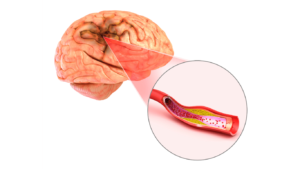In the bustling modern world, finding moments of tranquility and mental clarity is becoming increasingly vital. Meditation, an ancient practice with roots in various cultures and religions, emerges as a powerful tool for achieving these coveted moments. In this guide, we delve into the intricacies of meditation, examining its diverse forms, dispelling myths, and uncovering the profound impact it can have on mental and physical well-being.
Unraveling the Essence of Meditation
Meditation, at its core, involves the focused alignment of mind and body through a myriad of techniques. Its roots stretch back thousands of years, encompassing various forms across cultures globally. While the external appearance may seem serene, the internal impact is a dynamic interplay of mental and physical processes.
The Evolution of Meditation
Modern science, aided by cutting-edge technologies like electroencephalography (EEG) and functional magnetic resonance imaging (fMRI), has begun unraveling the mysteries of meditation. These studies reveal that seemingly simple practices like controlled breathing or repetitive sounds can induce profound positive effects on the brain and mental health.
Navigating the Diversity: Is Meditation Religious?
The question of whether meditation is a religious practice is nuanced. While it has historical ties to numerous philosophies and religions, it transcends religious boundaries. Let's explore various forms of meditation across different belief systems:
Buddhism: A Tapestry of Meditation
Buddhism, both a philosophy and religion, boasts diverse meditation practices. From the Theravadan meditation in Southeast Asia to the Zen Buddhist meditation rooted in China, each form offers unique perspectives and benefits.
Christian Contemplation: A Tranquil Quest
Contemplation in Christianity involves intense focus on questions, religious concepts, or deities. Often synonymous with prayer, it exemplifies how meditation extends beyond religious boundaries.
Osho and Sufi Meditations: Cultural and Spiritual Diversity
From India's dynamic Osho meditation, rooted in Hinduism, to Sufi meditation within Islam, these practices showcase the rich cultural tapestry of meditative traditions.
Transcendental and Taoist Meditation: Beyond Religious Boundaries
Originating in India, Transcendental Meditation is nonreligious, involving mantras for focus. Meanwhile, Taoist meditation from China, like Buddhism, blurs the line between philosophy and religion.
Yoga: Melding the Physical and the Meditative
Yoga, both a physical exercise and meditation form from India, exemplifies how meditation can seamlessly intertwine with bodily movement and mindfulness.

The Art of Meditation: Techniques Demystified
Meditation is a vast landscape with myriad techniques. Here, we distill the common processes that transcend different forms:
-
Body-Centered Meditation: Journey Within
Often termed self-scanning, this technique involves focusing on physical sensations throughout the body. It's a pathway to heightened self-awareness and mindfulness.
-
Contemplation: Navigating Questions
Concentrating on a question or contradiction without mental wandering characterizes contemplative meditation. It nurtures focused introspection.
-
Emotion-Centered and Mantra Meditation: Harnessing Focus
Focusing on specific emotions or repeating phrases cultivates emotional intelligence and mental clarity, demonstrating the diversity within meditative practices.
-
Mindfulness and Visual-Based Meditation: Anchoring in the Present
Staying aware of the present moment or focusing on visual stimuli brings mindfulness to the forefront. It aligns mind and body, fostering a deep sense of awareness.
Unlocking the Benefits: Why Meditate?
The journey into meditation is not just a philosophical quest; it yields tangible benefits for mental and physical health. Researchers have identified several advantages that regular meditation can confer:
Enhanced Mental Health
Regular meditation correlates with decreased symptoms of anxiety, depression, and post-traumatic stress disorder (PTSD). It provides a mental sanctuary, fostering emotional resilience.
Cognitive Empowerment
Meditators often exhibit improved cognitive abilities, including enhanced thinking, concentration, and problem-solving skills. The practice refines mental acuity and adaptability.
Holistic Well-Being
The mind-body connection becomes evident as meditation positively influences sleep patterns, blood pressure, and heart function. A harmonious mental state translates into comprehensive well-being.
Decoding the Neurological Symphony: How Meditation Works
To comprehend the transformative power of meditation, understanding its impact on brain structure is essential. Within the vast neural networks, meditation induces specific changes, including increased neuronal connections and denser brain tissue.
Strengthened Neural Networks
Regular meditation fosters denser brain tissue and reinforced connections in areas governing senses, cognitive functions, and emotional processing. This structural resilience contributes to sustained cognitive abilities.






